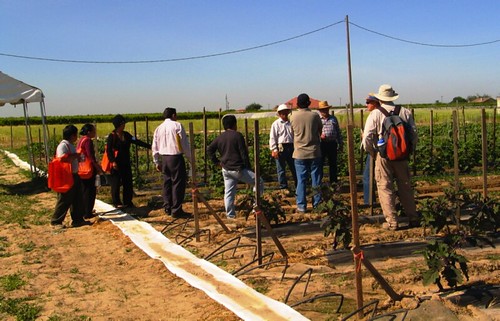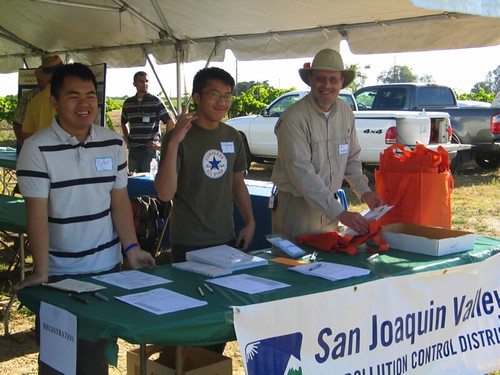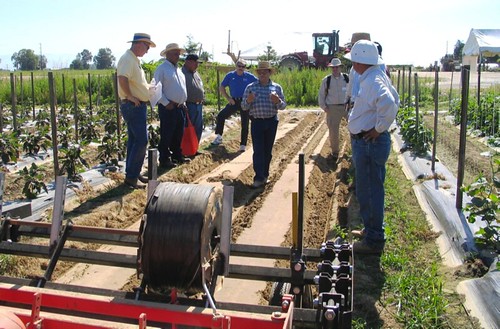By Lisa A. Hokholt, NRCS California State Outreach Coordinator
California’s Central Valley has long lured farmers to its fertile soil and generous growing season. It’s no surprise that Southeast Asian farmers are settling there too, bringing their farming and culinary cultures with them.
Conservation of soil, water and air might have been way down their priority list if not for assistance from the USDA Natural Resources Conservation Service (NRCS). For years now, NRCS has strived to insure that Hmong farmers have the same level of access to its technical services and programs as other clients. Two recent events helped NRCS build its service delivery capacity while also strengthening the conservation capacity of the Hmong farming community.
The Second Annual Hmong American Farmers (NHAF) National Conference, held in Fresno, California in May, showcased successes and provided a forum to discuss challenges facing Hmong farmers. The Clean Air Farming Workshop, held in June at a Hmong-owned farm in Del Rey, California presented technical information -- in the Southeast Asian languages of Hmong, Lao, and Khmer (as well as Spanish and English) -- about farming practices that reduce harmful air pollutants. Both events were designed to bolster awareness, enhance technical skills, exchange information, identify needs, build and strengthen effective partnerships, provide leadership, and offer fellowship.
Farmers at the NHAF Conference expressed to USDA agency reps that processes required by some federal programs are currently too complicated. On the other hand, NRCS and its sister agencies had opportunities to explain how specific programs work and to help identify and match programs to farmers’ needs. This exchange of information will help NRCS modify assistance and processes accordingly, and local farmers gained a better understanding of how to participate in Farm Bill programs.
The Clean Air Farming Workshop, organized and sponsored by NRCS and several partners, showcased specialized equipment suitable for small farm applications and information about on-farm conservation practices that reduce harmful air pollution sources such as volatile pesticides, soil erosion by wind, and diesel exhaust emissions. Five stations with different learning topics were set up among the farm’s Asian vegetable crops and participants were divided into different language groups. As the language groups went from topic to topic, so did translators who facilitated the learning process. The small groups enabled presenters to focus on farmers’ specific interests and needs.
California NRCS’ strategy to assist Hmong farmers has included hiring native Hmong speakers as technical field staff, supporting field workshops and demonstration projects, producing Hmong-language informational materials, supporting Hmong radio programming, and working with partners such as local University of California Farm Advisors who share a similar commitment to working with new client groups.

Hmong farmers participate in the Clean Air Farming Workshop at Cherta Farms owned by Txexa Lee (center, in white hat) in Del Rey, California, where air quality concerns impact human health and choice of farming practices.

Clean Air Farming Workshop Participants were able to sign up for continuing education credits - a requirement to maintain pest control advisor and other certifications.

NRCS Soil Conservationist (center) describes the benefits of reducing soil compaction, in this case accomplished by use of a low impact cultivator.
